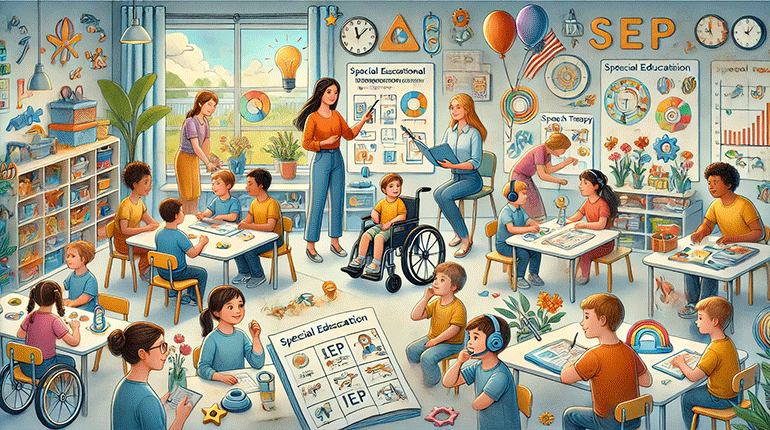Educational Support for Children with Special Educational Needs, Including Autism
Children with special educational needs (SEN), including those with autism, are entitled to various supportive measures to ensure they receive the education they deserve. These measures play a critical role in fostering their academic, social, and personal development. Understanding these resources is essential for parents, educators, and policymakers striving to create an inclusive and effective learning environment.
Customized Learning Plans
One of the cornerstone supports for children with SEN is the development of personalized learning plans, often referred to as Individualized Education Programs (IEPs) or similar frameworks in various countries. These plans:
Identify the Child’s Needs: Conduct thorough assessments to understand the child’s strengths, weaknesses, and specific challenges.
Set Clear Goals: Outline short-term and long-term academic, social, and behavioral goals tailored to the child.
Detail Support Services: Specify the types of assistance provided, such as specialized teaching methods, technology aids, or therapeutic interventions.
Ensure Regular Reviews: Include mechanisms for periodic review and adjustment to ensure the plan remains effective as the child progresses.
These structured approaches provide clarity and direction for educators and parents, ensuring that every child receives targeted support to achieve their potential.
Specialized Staff Support
Schools employ special education teachers trained to address the unique needs of children with SEN. These educators work collaboratively with parents, general education teachers, and specialists to:
Adapt lesson plans and teaching strategies to match individual learning styles.
Use evidence-based methods to improve understanding and engagement.
Provide social-emotional support to help children build confidence and resilience.
Additionally, teaching assistants (TAs) play a vital role by offering one-on-one or small group support, helping students stay on task and navigate daily lessons. Their presence ensures that children receive personalized attention and encouragement.
Access to Therapies
For children with autism and other SEN, integrating therapies into the educational experience is crucial. Common therapies include:
Speech and Language Therapy: Helps children improve communication skills, including articulation, understanding language, and non-verbal cues.
Occupational Therapy: Focuses on developing fine motor skills, sensory integration, and everyday functional abilities.
Behavioral Therapy: Includes strategies like Applied Behavior Analysis (ABA) to encourage positive behaviors and reduce challenges.
These therapies are typically delivered by licensed professionals, either on-site at schools or through external partnerships, ensuring that children’s developmental needs are met alongside their academic goals.
Inclusive Classroom Environments
Many educational systems emphasize the importance of inclusive education, integrating children with SEN into mainstream classrooms whenever possible. This approach:
Fosters Social Development: Encourages interaction with peers, promoting understanding and acceptance.
Provides Diverse Learning Opportunities: Exposes all students to a variety of perspectives and learning styles.
Empowers Teachers: Training and resources enable educators to differentiate instruction, making lessons accessible to all students, regardless of ability.
Inclusion is supported by tools like assistive technology, peer mentorship programs, and classroom accommodations such as flexible seating or adjusted timelines for completing tasks.
Support Networks and Resources
Parents and caregivers play a pivotal role in advocating for their children’s education. To assist them, numerous support networks and resources are available, including:
Workshops and Training: Provide parents with tools to understand educational policies, navigate school systems, and support their children at home.
Resource Libraries: Offer access to books, articles, and digital tools on SEN and autism.
Support Groups: Create a sense of community by connecting families facing similar challenges, allowing them to share experiences and advice.
Advocacy Organizations: Help families understand their rights and work with schools to secure necessary services.
These networks empower families to take an active role in their child’s education, ensuring that they receive the best possible support.

